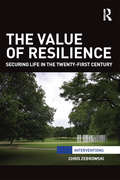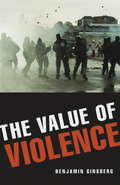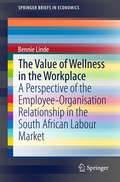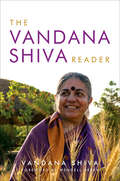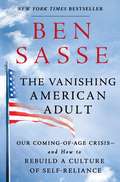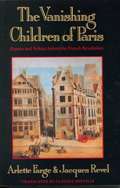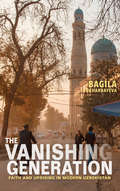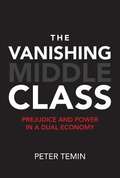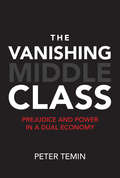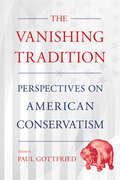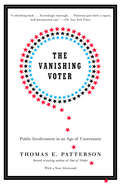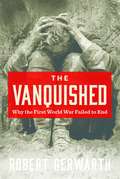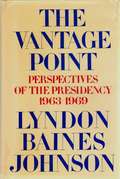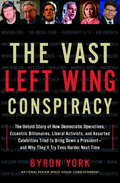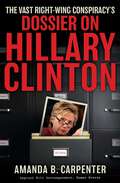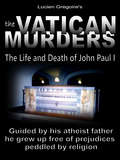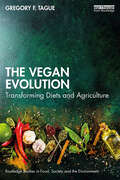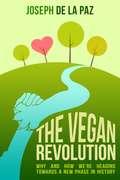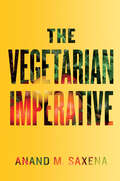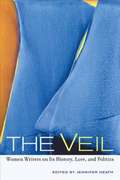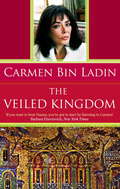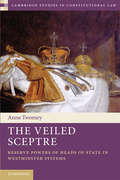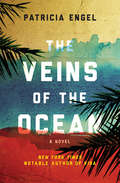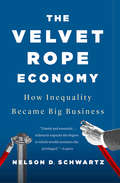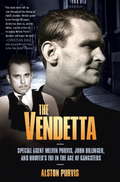- Table View
- List View
The Value of Resilience: Securing life in the twenty-first century (Interventions)
by Chris ZebrowskiThe Value of Resilience represents one of the first systematic studies of resilience in the field of security studies. At the turn of the twenty-first century, resilience has become a ‘buzz-word’ within fields as diverse as network engineering, ecosystems management, child psychology and military training programmes. Resilience has emerged as a solution to the common problematic of radical contingency experienced across these fields. At its most general level resilience is understood as the capacity to absorb, withstand and ‘bounce-back’ quickly and efficiently from a perturbation. It is considered to be both a natural property and a quality which can be improved within a broad array of complex systems. Rather than treating resilience as either a unified concept or technique of governance, this book analyses resilience as an emergent security value. Utilizing a biopolitical analytic, it demonstrates that the value of resilience has appreciated alongside transformations in the order of power/knowledge enacted by political economies of security. Zebrowski argues that resilience was not lying in wait for the march of science to provide the conditions for its recognition. Nor was it concealed by the distortions of ideology which lifted with the culmination of the Cold War. There is nothing natural about resilience. By drawing attention to the complex historical processes and significant governmental efforts required to make resilience possible, this book aims to open up a space through which the value of resilience may be more critically interrogated. It will be of interest to students and scholars of international relations, security studies and conflict resolution.
The Value of Violence
by Benjamin GinsbergThis provocative thesis calls violence the driving force not just of war, but of politics and even social stability. Though violence is commonly deplored, political scientist Ginsberg argues that in many ways it is indispensable, unavoidable, and valuable. Ginsberg sees violence manifested in society in many ways. "Law-preserving violence" (using Walter Benjamin's phrase) is the chief means by which society preserves social order. Behind the security of a stable society are the blunt instruments of the police, prisons, and the power of the bureaucratic state to coerce and manipulate. Ginsberg also discusses violence as a tool of social change, whether used in outright revolution or as a means of reform in public protests or the threat of insurrection. He notes that even groups committed to nonviolent tactics rely on the violent reactions of their opponents to achieve their ends. And to avoid the threat of unrest, modern states resort to social welfare systems (a prudent use of the carrot instead of the stick). Emphasizing the unavoidability of violence to create major change, Ginsberg points out that few today would trade our current situation for the alternative had our forefathers not resorted to the violence of the American Revolution and the Civil War.
The Value of Wellness in the Workplace
by Bennie LindeThis book examines the links between employee-organisation relationships, work wellness and the impact thereof on the labour market from a South African perspective. By employing this focus, the book explains the role of the employment relationship and the psychological contract in improving work wellness. To do so, it reviews the establishment and management of contracts in the context of labour relations at South African organisations. The studies presented focus on a range of topics, from individual wellness, the employment relationship and psychological contract, to relational wellness, the broader labour approach, and industrial action. The book presents a structural framework from an individual and labour relational perspective that links the employee-organisation relationship with wellness and its economic value, making it of interest to general and financial managers seeking to better grasp the link between work wellness and its financial implications.
The Vandana Shiva Reader (Culture of the Land)
by Vandana ShivaThe pioneering environmental activist presents her most influential writings—with an informative introduction by Wendell Berry.Motivated by agricultural devastation in her home country of India, Vandana Shiva became one of the world's most influential environmental and anti-globalization activists. Her groundbreaking research has exposed the destructive effects of monocultures and commercial agriculture and revealed the links between ecology, gender, and poverty.In The Vandana Shiva Reader, Shiva assembles her most influential writings, combining trenchant critiques of the corporate monopolization of agriculture with a powerful defense of biodiversity and food democracy. This essential collection demonstrates the full range of Shiva's research and activism, from her condemnation of commercial seed technology, genetically modified organisms (GMOs), and the international agriculture industry's dependence on fossil fuels, to her tireless documentation of the extensive human costs of ecological deterioration.This important volume illuminates Shiva's profound understanding of both the perils and potential of our interconnected world and calls on citizens of all nations to renew their commitment to love and care for soil, seeds, and people.
The Vanishing American Adult: Our Coming-of-Age Crisis--and How to Rebuild a Culture of Self-Reliance
by Ben Sasse<P>In an era of safe spaces, trigger warnings, and an unprecedented election, the country's youth are in crisis. Senator Ben Sasse warns the nation about the existential threat to America's future. <P>Raised by well-meaning but overprotective parents and coddled by well-meaning but misbegotten government programs, America's youth are ill-equipped to survive in our highly-competitive global economy. Many of the coming-of-age rituals that have defined the American experience since the Founding: learning the value of working with your hands, leaving home to start a family, becoming economically self-reliant—are being delayed or skipped altogether. <P>The statistics are daunting: 30% of college students drop out after the first year, and only 4 in 10 graduate. One in three 18-to-34 year-olds live with their parents. From these disparate phenomena: Nebraska Senator Ben Sasse who as president of a Midwestern college observed the trials of this generation up close, sees an existential threat to the American way of life. <P>In The Vanishing American Adult, Sasse diagnoses the causes of a generation that can't grow up and offers a path for raising children to become active and engaged citizens. He identifies core formative experiences that all young people should pursue: hard work to appreciate the benefits of labor, travel to understand deprivation and want, the power of reading, the importance of nurturing your body—and explains how parents can encourage them. <P>Our democracy depends on responsible, contributing adults to function properly—without them America falls prey to populist demagogues. A call to arms, The Vanishing American Adult will ignite a much-needed debate about the link between the way we're raising our children and the future of our country. <P><b>A New York Times Bestseller</b>
The Vanishing Children Of Paris: Rumor And Politics Before The French Revolution
by Arlette Farge Claudia Mieville Jacques RevelIn the spring of 1750 a two-day series of riots erupted in Paris when the populace discovered that police were sweeping children off the streets in an overzealous attempt to control vagrancy. Arlette Farge and Jacques Revel use this bizarre incident and its colorful cast of actors to view broader issues such as the power of rumor, mob psychology, the exercise of authority, and the maintenance of peace in Paris under the ancien regime.
The Vanishing Generation: Faith and Uprising in Modern Uzbekistan
by Bagila BukharbayevaAs a young reporter in Uzbekistan, Bagila Bukharbayeva was a witness to her countrys search for an identity after the collapse of the Soviet Union. While self-proclaimed religious leaders argued about what was the true Islam, Bukharbayeva shows how some of the neighborhood boys became religious, then devout, and then a threat to the country's authoritarian government. The Vanishing Generation provides an unparalleled look into what life is like in a religious sect, the experience of people who live for months and even years in hiding, and the fabricated evidence, torture, and kidnappings that characterize an authoritarian government. In doing so, she provides a rare and unforgettable story of what life is like today inside the secretive and tightly controlled country of Uzbekistan. Balancing intimate memories of playmates and neighborhood crushes with harrowing stories of extremism and authoritarianism, Bukharbayeva gives a voice to victims whose stories would never otherwise be heard.
The Vanishing Middle Class: Prejudice and Power in a Dual Economy
by Peter TeminThe United States is becoming a nation of rich and poor, with few families in the middle. In this book, MIT economist Peter Temin offers an illuminating way to look at the vanishing middle class. Temin argues that American history and politics, particularly slavery and its aftermath, play an important part in the widening gap between rich and poor. Temin employs a well-known, simple model of a dual economy to examine the dynamics of the rich/poor divide in America, and outlines ways to work toward greater equality so that America will no longer have one economy for the rich and one for the poor.Many poorer Americans live in conditions resembling those of a developing country -- substandard education, dilapidated housing, and few stable employment opportunities. And although almost half of black Americans are poor, most poor people are not black. Conservative white politicians still appeal to the racism of poor white voters to get support for policies that harm low-income people as a whole, casting recipients of social programs as the Other -- black, Latino, not like "us." Politicians also use mass incarceration as a tool to keep black and Latino Americans from participating fully in society. Money goes to a vast entrenched prison system rather than to education. In the dual justice system, the rich pay fines and the poor go to jail.
The Vanishing Middle Class: Prejudice and Power in a Dual Economy (The\mit Press Ser.)
by Peter TeminWhy the United States has developed an economy divided between rich and poor and how racism helped bring this about.The United States is becoming a nation of rich and poor, with few families in the middle. In this book, MIT economist Peter Temin offers an illuminating way to look at the vanishing middle class. Temin argues that American history and politics, particularly slavery and its aftermath, play an important part in the widening gap between rich and poor. Temin employs a well-known, simple model of a dual economy to examine the dynamics of the rich/poor divide in America, and outlines ways to work toward greater equality so that America will no longer have one economy for the rich and one for the poor.Many poorer Americans live in conditions resembling those of a developing country—substandard education, dilapidated housing, and few stable employment opportunities. And although almost half of black Americans are poor, most poor people are not black. Conservative white politicians still appeal to the racism of poor white voters to get support for policies that harm low-income people as a whole, casting recipients of social programs as the Other—black, Latino, not like "us." Politicians also use mass incarceration as a tool to keep black and Latino Americans from participating fully in society. Money goes to a vast entrenched prison system rather than to education. In the dual justice system, the rich pay fines and the poor go to jail.
The Vanishing Tradition: Perspectives on American Conservatism
by Paul GottfriedThis anthology provides a timely critical overview of the American conservative movement. The contributors take on subjects that other commentators have either not noticed or have been fearful to discuss. In particular, this collection of searing essays hits hard at blatant cult of celebrity and intolerance of dissent that has come to characterize the conservative movement in this country. As The Vanishing Tradition shows, the conservative movement has not often retrieved its wounded, instead dispatching them in order to please its friendly opposition and to prove its "moderateness." The movement has also been open to the influence of demanding sponsors who have pushed it in sometimes bizarre directions. Finally, the essayists here, highlight the movement's appeal to "permanent values" as a truly risible gesture, given how arduously its celebrities have worked to catch up with the Left on social issues. This no-holds-barred critical examination of American conservatism opens debates and seeks controversy.
The Vanishing Voter: Public Involvement in an Age of Uncertainty
by Thomas E. PattersonFrom the award-winning author ofOut of Order—named the best political science book of the last decade by the American Political Science Association—comes this landmark book about why Americans don’t vote. Based on more than 80,000 interviews,The Vanishing Voterinvestigates why—despite a better educated citizenry, the end of racial barriers to voting, and simplified voter registration procedures—the percentage of voters has steadily decreased to the point that the United States now has nearly the lowest voting rate in the world. Patterson cites the blurring of differences between the political parties, the news media’s negative bias, and flaws in the election system to explain this disturbing trend while suggesting specific reforms intended to bring Americans back to the polls. Astute, far-reaching, and impeccably researched,The Vanishing Voterengages the very meaning of our relationship to our government.
The Vanquished: Why the First World War Failed to End
by Robert GerwarthAn epic, groundbreaking account of the ethnic and state violence that followed the end of World War I―conflicts that would shape the course of the twentieth century For the Western Allies, November 11, 1918, has always been a solemn date―the end of fighting that had destroyed a generation, but also a vindication of a terrible sacrifice with the total collapse of the principal enemies: the German Empire, Austria-Hungary, and the Ottoman Empire. But for much of the rest of Europe this was a day with no meaning, as a continuing, nightmarish series of conflicts engulfed country after country. In The Vanquished, a highly original and gripping work of history, Robert Gerwarth asks us to think again about the true legacy of the First World War. In large part it was not the fighting on the Western Front that proved so ruinous to Europe’s future, but the devastating aftermath, as countries on both sides of the original conflict were savaged by revolutions, pogroms, mass expulsions, and further major military clashes. In the years immediately after the armistice, millions would die across central, eastern, and southeastern Europe before the Soviet Union and a series of rickety and exhausted small new states would come into being. It was here, in the ruins of Europe, that extreme ideologies such as fascism would take shape and ultimately emerge triumphant. As absorbing in its drama as it is unsettling in its analysis, The Vanquished is destined to transform our understanding of not just the First World War but the twentieth century as a whole.
The Vantage Point: Perspectives of the Presidency, 1963-1969
by Lyndon B. JohnsonThe book focuses on a wide variety of accomplishments and events, both domestic and foreign, which shaped the Presidency of Lyndon Johnson. In addition to the war in Vietnam, Johnson tells of the War on Poverty here in the United States.
The Vast Left Wing Conspiracy
by Byron York“We have to fight back.” —Al FrankenThe Left is angry—angry at President George W. Bush, the war in Iraq, the “right-wing media,” and more. And as National Review investigative writer Byron York reveals in this stunning, meticulously reported book, liberal activists have harnessed that anger to build the biggest, richest, and best organized political movement in American history.Indeed, the Left’s failure to oust President Bush in 2004 has obscured the fact that this new movement has transformed American politics. York documents the staggering scope of liberals’ efforts—the record sums of money spent, the “shell game” financial maneuvers, the close coordination between “nonpartisan” groups and the Democratic Party, the revolutionary approaches to fund-raising and reaching out to voters, the pioneering use of movies and websites as campaign tools, and more.The Vast Left Wing Conspiracy provides a startling behind-the-scenes look at this powerful liberal movement. York brings the reader into secret powwows at Soros’s Hamptons estate, into the Chinese restaurant where MoveOn is born, to a gala event where Al Franken rants about the evils of the right wing, to fund-raisers where liberals openly mock the election laws they’re ignoring, to the movie premiere where Michael Moore is feted by top-ranking Democrats, into the Washington restaurant where Democratic operatives hatch their plan, and to many other spots along the way.One thing above all becomes clear: Despite their failure to win in 2004, liberals will only keep improving the well-oiled political machine they built.A Main Selection of the Conservative Book Club
The Vast Right-Wing Conspiracy's Dossier on Hillary Clinton
by Amanda B. CarpenterShe is the darling of the Manhattan elite, the hope of the national Democratic Party, the MVP of the pro-choice feminist movement, the rock star of the Hollywood Left, and the favorite of the liberal media.Luckily, over here at the Vast Right-Wing Conspiracy, we've been keeping a file on her.Written in the style and format of the New York Times bestseller The Official Handbook of the Vast Right-Wing Conspiracy, this expose is full of fresh reporting, devastating quotes, scandalous stories, funny sidebars, and forgotten but telling incidents from Hillary Clinton's past.
The Vatican Murders: The Life and Death of John Paul I
by Lucien Gregoire"A monumental work of twentieth century capitalism as it was jointly embraced by the Vatican and the United States and those caught up in it. Top-shelf CIA-Vatican intrigue." The Times // Some claim the Vatican Bank had to do with his murder. Others claim his threat to change doctrine that unfairly penalizes the lives of innocent people drove curial cardinals in the clandestine deed. Others claim the threat he was to the capitalistic tenets upon which the United States was founded rallied the CIA to action. Others whisper his sexual orientation led to his demise. 'The Vatican Murders' reveals how each of these played a role in the murder of the youngest pope to die in four hundred years. // When elected he was tabbed a liberal on a few bits which had reached outside Italy. Like the times he had been caught baptizing illegitimate children, to the times he had been caught officiating at funerals of the remarried, to the times he ordered hospitals to admit partners of homosexuals into ICUs, to the time he defended their right to parent children, to the times he defied the contraception ban, to the time he declared "God is the Father. More so, the Mother." // On March 13, 1978, fourteen men sat around a table in a village café in northern Italy. In casual clothes they went unnoticed though one was the Pope and another the Marxist leader of the Russian Orthodox Church. Included were Italian cardinals and statesmen who had been behind the rise of the Communist Party in Italy. The others were cardinals of impoverished parts of the world. Together they comprised the leadership of the Marxist movement in the western world. They left at 4 o'clock and Aldo Moro reserved the table "...for this time next year." // On March 13, 1979, cardinals Benelli and Felici decided not to travel to northern Italy that day. After all, all the others were dead. They--unaware of their impending doom--were, too, as good as dead........ True Life - True Crime.
The Vegan Evolution: Transforming Diets and Agriculture (Routledge Studies in Food, Society and the Environment)
by Gregory F. TagueArguing for a vegan economy, this book explains how we can and should alter our eating habits away from meat and dairy through sociocultural evolution. Using the latest research and ideas about the cultural ecology of food, this book makes the case that through biological and, especially, cultural evolution, the human diet can gravitate away from farmed meat and dairy products. The thrust of the writing demonstrates that because humans are a cultural species, and since we are evolving more culturally than biologically, it stands to reason for health and environmental reasons that we develop a vegan economy. The book shows that for many good reasons we don’t need a diet of meat and dairy and a call is made to legislative leaders, policy makers, and educators to shift away from animal farming and inform people about the advantages of a vegan culture. The bottom line is that we have to start thinking collectively about smarter ways of growing and processing plant foods, not farming animals as food, to generate good consequences for health, the environment, and, therefore, animals. This is an attainable and worthy goal given the mental and physical plasticity of humans through cooperative cultural evolution. This book is essential reading for all interested in veganism, whether for ethical, environmental, or health reasons, and those studying the human diet from a range of disciplines, including cultural evolution, food ecology, animal ethics, food and nutrition, and evolutionary studies.
The Vegan Revolution: Why and How We Are Heading Towards a New Phase in History
by Joseph de la Paz Katie UniackeDo you want to get a deeper insight into what veganism is really about? Do you care about animals, human health or the planet? Is the future of humanity important for you? Let's find out why veganism is the most significant phenomenon of our time and how it is changing the world. In this fascinating and surprising book, you’ll learn: • The whole spectrum of reasons and benefits why more and more people are becoming interested in veganism • Scientific information about health, psychology, sociology, economics, biology and ecology • Why veganism is more than just a diet and also more than just a philosophy • Why it’s changing our perception of public health, animal rights and ecology • How veganism is spreading and getting closer to the tipping point • A vision of the vegan future awaiting us “Nothing is more powerful than an idea whose time has come.” (Victor Hugo) “This book was born to provide words, arguments and facts that support the inner conviction that millions of vegans all over the world share: This is the way forward, and there’s no turning back.” (Joseph de la Paz) READERS FEEDBACK (Spanish Edition): ***** Amazing: A book that will change the lives of many. ***** An unmissable book, the best one I’ve read in a long time. Anyone who wants to understand veganism and why it’s the future of humanity will find the answers they’re looking for. ***** I recommend it to everyone: It’s not just a book for vegans who are already convinced, but for non-vegans, so that they open their eyes and realise the state of the world we’re living in is in, and that we have the solution in our hands. They can’t say we didn’t warn them. ***** Revolutionary: An unmissable book for anyone who cares about animals, as well as their fellow
The Vegetarian Imperative
by Anand M. SaxenaWe have learned not to take food seriously: we eat as much as we want of what we want when we want it, and we seldom think about the health and environmental consequences of our choices. But the fact is that every choice we make has an impact on our health and on the environment. In The Vegetarian Imperative, Anand M. Saxena, a scientist and a vegetarian for most of his life, explains why we need to make better choices: for better health, to eliminate world hunger, and, ultimately, to save the planet. Our insatiable appetite for animal-based foods contributes directly to high rates of chronic diseases—resulting in both illness and death. It also leads to a devastating overuse of natural resources that dangerously depletes the food available for human consumption. The burgeoning population and increasing preference for meat in all parts of the world are stretching planetary resources beyond their limits, and the huge livestock industry is degrading the agricultural land and polluting air and water.Continuing at this pace will bring us to the crisis point in just a few decades—a reality that threatens not only our current lifestyle but our very survival. This book shows us a way out of this dangerous and vicious cycle, recommending a much-needed shift to a diet of properly chosen plant-based foods.Any one of these arguments alone—personal health, worldwide hunger, and environmental degradation—provides reason enough to stop consuming so much animal-based food; taken together, they make an unassailable case for vegetarianism. The Vegetarian Imperative will make you rethink what you eat—and help you save the planet.
The Veil: Women Writers on its History, Lore, and Politics
by Jennifer HeathThis groundbreaking volume, written entirely by women, examines the vastly misunderstood and multilayered world of the veil. Veiling— of women, of men, and of sacred places and objects—has existed in countless cultures and religions from time immemorial. Today, veiling is a globally polarizing issue, a locus for the struggle between Islam and the West and between contemporary and traditional interpretations of Islam. But veiling was a practice long before Islam and still extends far beyond the Middle East. This book explores and examines the cultures, politics, and histories of veiling. Twenty-one gifted writers and scholars, representing a wide range of societies, religions, ages, locations, races, and accomplishments, here elucidate, challenge, and/or praise the practice. Expertly organized and introduced by Jennifer Heath, who also writes on male veiling, the essays are arranged in three parts: the veil as an expression of the sacred; the veil as it relates to the emotional and the sensual; and the veil in its sociopolitical aspects. This unique, dynamic, and insightful volume is illustrated throughout. It brings together a multiplicity of thought and experience, much of it personal, to make readily accessible a difficult and controversial subject. Contributors: Kecia Ali, Michelle Auerbach, Sarah C. Bell, Barbara Goldman Carrel, Eve Grubin, Roxanne Kamayani Gupta, Jana M. Hawley, Jasbir Jain, Mohja Kahf, Laurene Lafontaine, Shireen Malik, Maliha Masood, Marjane Satrapi, Aisha Shaheed, Rita Stephan, Pamela K. Taylor, Ashraf Zahedi, Dinah Zeiger, Sherifa Zuhur
The Veiled Kingdom
by Carmen Bin LadinOn September 11th 2001, Carmen Bin Ladin heard the news on the radio that the Twin Towers had been struck. She instinctively knew that her brother-in-law's name would be linked to these horrifying acts of terrorism, and her heart went out to the victims in America. She also knew that her life and the lives of her family would never be the same again. In 1974 Carmen, half Swiss and half Persian, married Yeslam Bin Ladin and found herself inside the complex and vast clan of Bin Laden, part of a society that at that point she neither knew nor understood. Carmen Bin Ladin's story takes us inside one of the most powerful, secretive and repressive kingdoms in the world.
The Veiled Sceptre: Reserve Powers Of Heads Of State In Westminster Systems (Cambridge Studies In Constitutional Law #20)
by Anne TwomeyThis book is a comprehensive review and analysis of the reserve powers and their exercise by heads of state in countries that have Westminster systems. It addresses the powers of the Queen in the United Kingdom, those of her vice-regal representatives, and those of heads of state in the less studied realms and former colonies that are now republics.<P><P> Drawing on a vast range of previously unpublished archival and primary material, The Veiled Sceptre contains fresh perspectives on old controversies. It also reveals constitutional crises in small countries, which have escaped the notice of most scholars. This book places the exercises of reserve powers within the context of constitutional principle and analyses how heads of state should act when constitutional principles conflict. <P>Providing an unrivalled contemporary analysis of reserve powers, this book will appeal to constitutional scholars worldwide and others involved in the administration of systems of responsible government.
The Veins of the Ocean: A Novel
by Patricia EngelIn this &“profound, daring&” tale of loss and faith, a woman haunted by tragedy begins to find healing in the waters—and love—that surround her (San Francisco Chronicle). Reina Castillo&’s beloved brother has been sentenced to death for an unthinkable crime that shocked the community—and Reina secretly blames herself. Devastated and grieving, Reina moves to a quiet enclave in the Florida Keys seeking anonymity and a new start, and meets Nesto Cadena, a recently exiled Cuban awaiting the arrival of the children he left behind in Havana. Inspired by Nesto&’s love of the sea and capacity for faith, Reina comes to understand her own connections to the life-giving and destructive forces of the ocean that surrounds her, as well as its role in her family&’s troubled history. Against a vibrant coastal backdrop that ranges from Miami to Cartagena, Colombia, author Patricia Engel delivers a profound and riveting Pan-American story of fractured souls finding solace and redemption in the beauty and power of the natural world—and in one another. &“This is a writer who understands that exile can be as much an emotional state as a geographical one, that the agony of leaving tugs against the agony of being left behind. . . . To immerse oneself in Engel&’s prose is to surrender to a seductive embrace, a hypnotic beauty that mingles submersion with submission.&” —The New York Times Book Review
The Velvet Rope Economy: How Inequality Became Big Business
by Nelson D. SchwartzFrom New York Times business reporter Nelson D. Schwartz comes a gripping investigation of how a virtual velvet rope divides Americans in every arena of life, creating a friction-free existence for those with money on one side and a Darwinian struggle for the middle class on the other side.In nearly every realm of daily life--from health care to education, highways to home security--there is an invisible velvet rope that divides how Americans live. On one side of the rope, for a price, red tape is cut, lines are jumped, appointments are secured, and doors are opened. On the other side, middle- and working-class Americans fight to find an empty seat on the plane, a place in line with their kids at the amusement park, a college acceptance, or a hospital bed. We are all aware of the gap between the rich and everyone else, but when we weren't looking, business innovators stepped in to exploit it, shifting services away from the masses and finding new ways to profit by serving the privileged. And as decision-makers and corporate leaders increasingly live on the friction-free side of the velvet rope, they are less inclined to change--or even notice--the obstacles everyone else must contend with. Schwartz's "must read" book takes us on a behind-the-scenes tour of this new reality and shows the toll the velvet rope divide takes on society.
The Vendetta: Special Agent Melvin Purvis, John Dillinger, and Hoover's FBI in the Age of Gangsters
by Alston PurvisIn "The Vendetta," author Alston Purvis recounts the story of his father, Melvin Purvis, the iconic G-man and public hero made famous by his remarkable sweep of the great Public Enemies of the American DepressionOCoJohn Dillinger; Pretty Boy Floyd, and Baby Face Nelson. PurvisOCOs successes led FBI boss J. Edgar Hoover to grow increasingly jealous, to the point where he vowed to bring down Purvis. Hoover smeared PurvisOCOs reputation, and tried to erase his name from all records of the FBI's greatest triumphs. This book sets the record straight, and provides a grippingly authentic new telling of the gangster era, seen from the perspective of the pursuers. "
